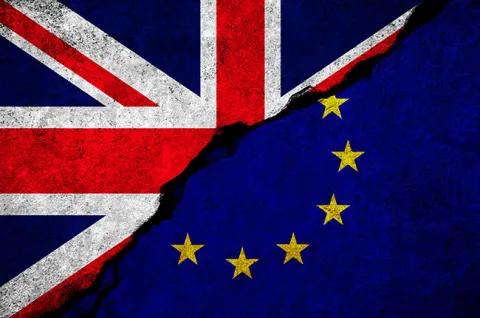UK intends to stay in the Unitary Patent system post-Brexit
July 12, 2018
The United Kingdom wants to stay in the Unitary Patent system post-Brexit. This has been confirmed in the UK’s Brexit White Paper, which was published today.
According to article 151 of the paper, ‘The UK has ratified the Unified Patent Court Agreement and intends to explore staying in the Court and unitary patent system after the UK leaves the EU. The Unified Patent Court has a unique structure as an international court that is a dispute forum for the EU’s unitary patent and for European patents, both of which will be administered by the European Patent Office. The UK will therefore work with other contracting states to make sure the Unified Patent Court Agreement can continue on a firm legal basis.’

He also said: ‘The UPC and Unitary Patent project are an important means of simplifying the protection of innovative products throughout Europe’ and ‘UK participation in the UPC and Unitary Patent will extend the benefits of these systems to businesses operating in the UK.’
The UK announcement doesn’t come as a surprise. Since the Brexit vote of 2016, the government has always declared it wants the UK to be a member of the Unitary Patent system. UK ratification of the Unified Patent Court Agreement and related protocols was completed in April 2018.
The announcement was immediately welcomed by the Chartered Institute of Patent Attorneys in the UK.
Still, the Brexit of 29 March 2019 is seen as a potential stumbling block for the UP system, as participation is only open to EU member states and by the time the system launches, the UK might not be an EU member any more. The system was expected to enter into force this year, which would mean the UK, as an EU member, could participate and some provisions would have to be adapted post-Brexit.
But this scenario has become unlikely due to the constitutional complaint against ratification of the UPCA in Germany (one of the obligatory signatories before the UP system can enter into force). The final decision in this case could come somewhere this year – if the Federal Constitutional Court doesn’t admit the case, but otherwise it could take up to a couple of years. In that case, the UK is not an EU member anymore and its membership of the Unitary Patent system would require complicated renegotiations and likely lead to the postponement of the implementation of the system, possibly for several years.
For regular updates, subscribe to this blog and the free Kluwer IP Law Newsletter.
You may also like















Concerned observer
Can anyone explain to me how it is that the current UPC Agreement could be salvaged if it is not amended (to reflect the changed status of the UK) before 30 March 2019? My understanding is that it is not possible to amend the UPC Agreement before it comes into force. Thus, if adaptations are required in the light of Brexit, it would appear necessary for those adaptations to be made BEFORE Brexit.